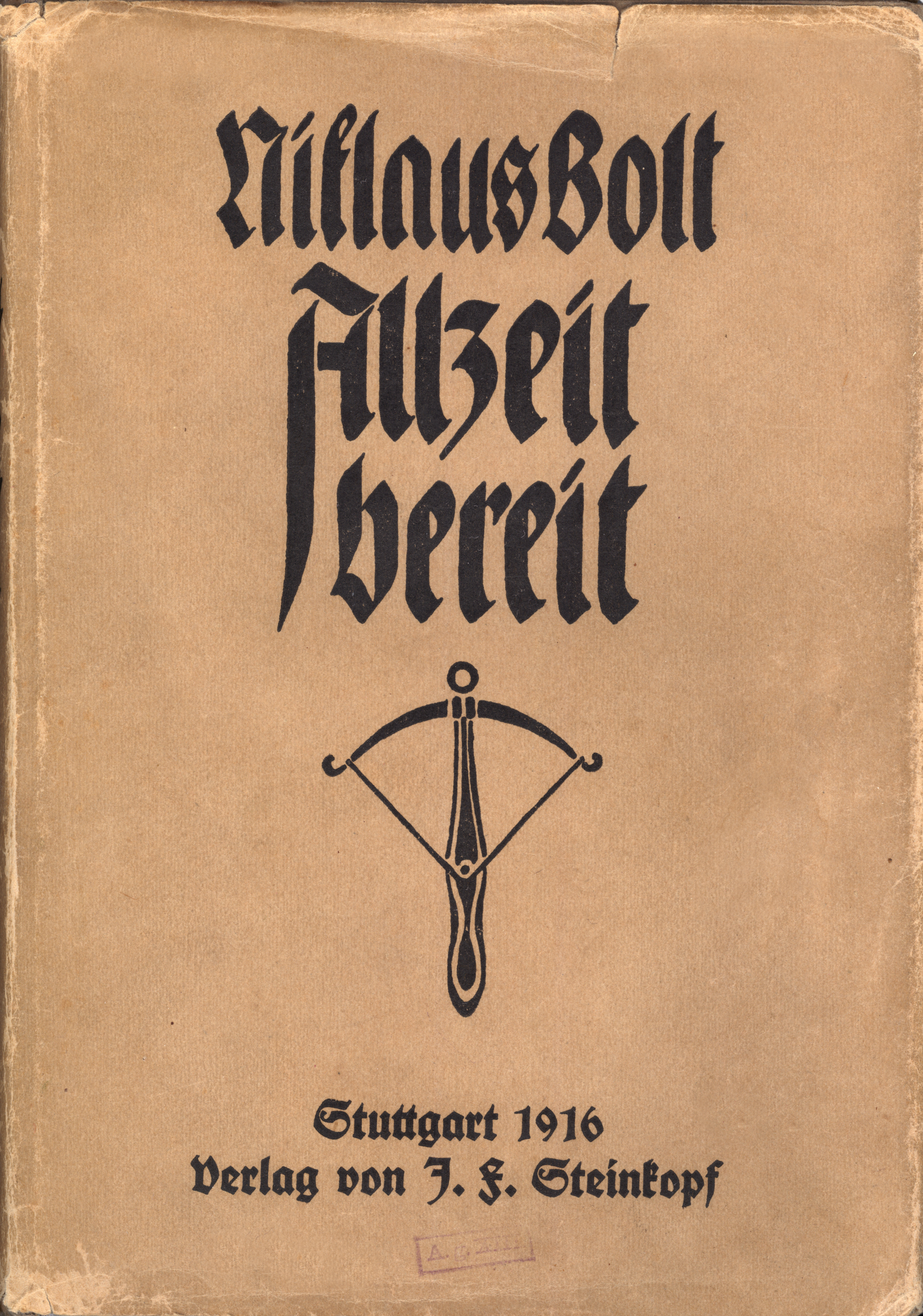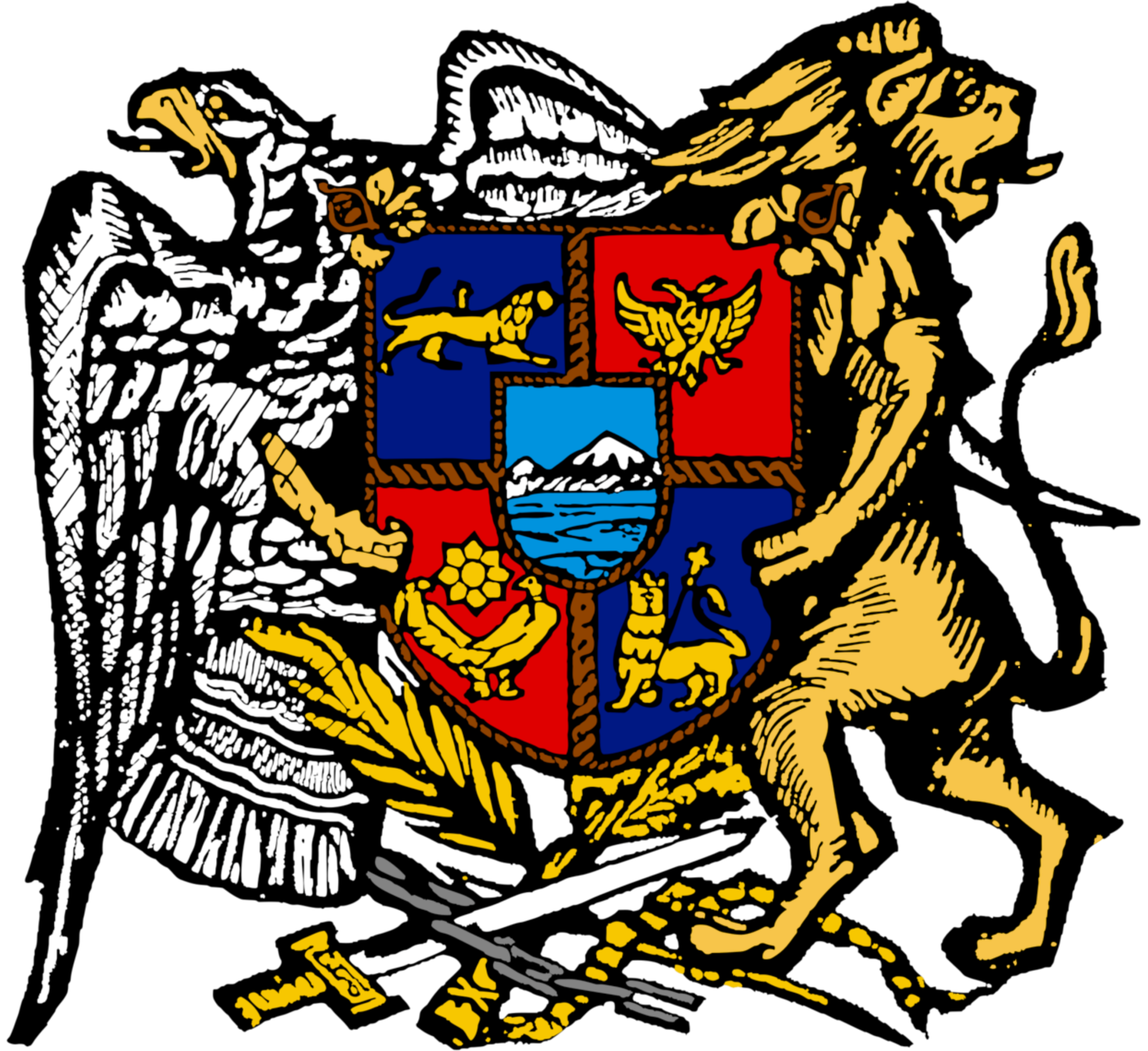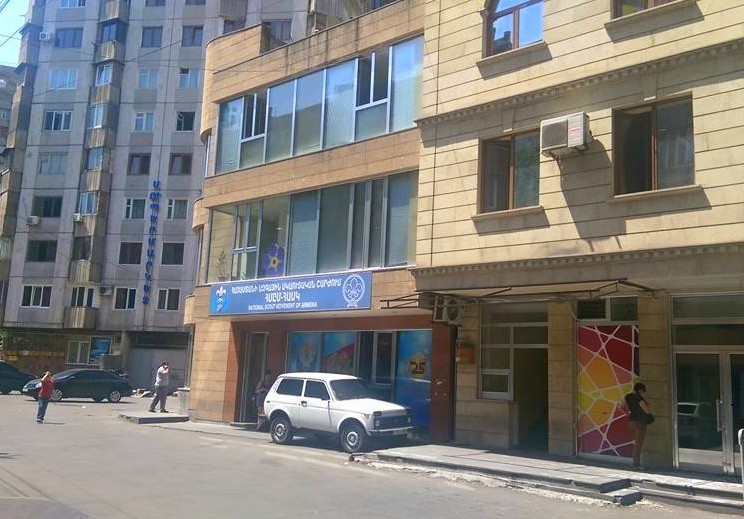|
Haï Ari
The Association of Armenian Scouts (, ''Haï Ari'', alternately ) was the Armenian Scouting in Exile movement recognized by the World Organization of the Scout Movement. In 1929 the Association of Armenian Scouts, centered in Paris, was given recognition as a member of the International Conference. ''Haï Ari'' was a member of the World Organization of the Scout Movement from 1929 to 1997. The organization was recognized in exile, with headquarters and approximately 1,100 members in France. History Scouting in Armenia was founded in 1912, then later developed abroad among the refugees who had survived the genocide of 1915-1916 and among those that had fled the communist takeover of Armenia in 1920, at which point Scouting ceased to exist in Armenia. Dr. Kourkène Medzadourian, Chief Scout of Armenia, moved to France, where troops of Armenian Scouts were established in large cities. In 1929, World Scouting recognized the Association of Armenian Scouts, ''Haï Ari'', based i ... [...More Info...] [...Related Items...] OR: [Wikipedia] [Google] [Baidu] |
Kourkène Medzadourian
Kourkène (Georges) Medzadourian () (July 10, 1908 - December 27, 1996) was the founder of the Haï Ari association of Armenian Scouts-in-Exile, based in France. Scouting in Armenia was founded in 1912, then later developed abroad among the refugees who had survived the genocide of 1915-1916 and among those that had fled the new communist occupation of their lands, at which point Scouting ceased to exist in Armenia. ''Haï Ari'' (in French ''Association des Scouts Armeniens'', in English Association of Armenian Scouts) was a member of the World Organization of the Scout Movement from 1928 to 1997. The organization was recognized in exile, with headquarters in Paris and approximately 1,100 members in France. In 1929, World Scouting recognised the association of Armenian Scouts ''Haï Ari'', based in France. While the Association did not have its own territorial base, it was the exception to the rule, remaining a member of the World Organization and the European Scout Region. ... [...More Info...] [...Related Items...] OR: [Wikipedia] [Google] [Baidu] |
Scout Motto
The Scout Motto of the Scout movement is, in English, "Be Prepared", with most international branches of the group using a close translation of that phrase. These mottoes have been used by millions of Scouts around the world since 1907. Most of the member organizations of the World Association of Girl Guides and Girl Scouts (WAGGGS) share the same mottoes. In the first part of ''Scouting for Boys'', Robert Baden-Powell explains the meaning of the phrase: Baden-Powell on "Be Prepared" Baden-Powell provides several descriptions of how and for what situations a Scout must be prepared elsewhere in ''Scouting for Boys''. In his explanation of the third point of the Scout Law, Baden-Powell says: In the opening chapter of ''Scouting for Boys'', Baden-Powell says: Baden-Powell discusses more skills required of Scouts in Chapter IV of ''Scouting for Boys'', which addresses camp life, and he lists: * Tying knots * Making a bivouac shelter for the night, or a hut for longer-term cam ... [...More Info...] [...Related Items...] OR: [Wikipedia] [Google] [Baidu] |
Youth Organizations Established In 1929
Youth is the time of life when one is young. The word, youth, can also mean the time between childhood and adulthood ( maturity), but it can also refer to one's peak, in terms of health or the period of life known as being a young adult. Youth is also defined as "the appearance, freshness, vigor, spirit, etc., characteristic of one, who is young". Its definitions of a specific age range varies, as youth is not defined chronologically as a stage that can be tied to specific age ranges; nor can its end point be linked to specific activities, such as taking unpaid work, or having sexual relations. Youth is an experience that may shape an individual's level of dependency, which can be marked in various ways according to different cultural perspectives. Personal experience is marked by an individual's cultural norms or traditions, while a youth's level of dependency means the extent to which they still rely on their family emotionally and economically. Terminology and definition ... [...More Info...] [...Related Items...] OR: [Wikipedia] [Google] [Baidu] |
Scouting And Guiding In Armenia
The Scout and Guide movement in Armenia is served by * Hayastani Azgayin Skautakan Sharjum Kazmakerputiun, member of the World Organization of the Scout Movement * National Association of Girl Guides and Girl Scouts of Armenia, member of the World Association of Girl Guides and Girl Scouts * Armenian General Benevolent Union Because of Armenia's longstanding diaspora, there are several extranational Armenian Scout and Scout-like organizations. Expatriate Armenian Scout associations include the three traditional Armenian diaspora political groupings the Dashnaks, Hnachags and the Ramgavar: * Hai Ari (1929–1998); World Organization of the Scout Movement membership withdrawn in 1997 in favor of Hayastani Azgayin Skautakan Sharjum Kazmakerputiun * Homenetmen - connected to the Armenian Revolutionary Federation (Dashnak Party) * Homenmen - connected to the Social Democrat Hunchakian Party * '' Armenian Young Men's Society- Hoyetchmen'' and ''Armenian Young Men's Society- Armenagan ... [...More Info...] [...Related Items...] OR: [Wikipedia] [Google] [Baidu] |
Exile Organizations
Exile or banishment is primarily penal expulsion from one's native country, and secondarily expatriation or prolonged absence from one's homeland under either the compulsion of circumstance or the rigors of some high purpose. Usually persons and peoples suffer exile, but sometimes social entities like institutions (e.g. the papacy or a government) are forced from their homeland. In Roman law, denoted both voluntary exile and banishment as a capital punishment alternative to death. Deportation was forced exile, and entailed the lifelong loss of citizenship and property. Relegation was a milder form of deportation, which preserved the subject's citizenship and property. The term diaspora describes group exile, both voluntary and forced. "Government in exile" describes a government of a country that has relocated and argues its legitimacy from outside that country. Voluntary exile is often depicted as a form of protest by the person who claims it, to avoid persecution and pros ... [...More Info...] [...Related Items...] OR: [Wikipedia] [Google] [Baidu] |
Disbanded Scouting Organizations
The fifth season of the American television series ''Arrow'' premiered on The CW on October 5, 2016, and concluded on May 24, 2017, with a total of 23 episodes. The series is based on the DC Comics character Green Arrow, a costumed crime-fighter created by Mort Weisinger and George Papp, and is set in the Arrowverse, sharing continuity with other Arrowverse television series. The showrunners for this season were Marc Guggenheim and Wendy Mericle. Stephen Amell stars as Oliver Queen, with principal cast members David Ramsey as John Diggle, Willa Holland as Thea Queen, Emily Bett Rickards as Felicity Smoak, and Paul Blackthorne as Quentin Lance also returning from previous seasons. They are joined by Echo Kellum as Curtis Holt, who was promoted to a series regular from his recurring status in the previous season, and new cast member Josh Segarra. The series follows billionaire playboy Oliver Queen (Stephen Amell), who claimed to have spent five years shipwrecked on Lian Yu, a ... [...More Info...] [...Related Items...] OR: [Wikipedia] [Google] [Baidu] |
Scouting And Guiding In France
The Scouting, Scout movement in France consisted in 2005 of about 60 different associations and federations with about 180,000 Scouts and Girl Guide and Girl Scout, Girl Guides. Next to Scouting in Germany, Germany, France is the country with the most fragmented Scout movement. National recognized organizations The national recognized organizations are grouped in two federations and one independent organization. Fédération du scoutisme Français The Scoutisme Français, Fédération du Scoutisme Français (Federation of French Scouting) is the national member of both the World Organization of the Scout Movement (WOSM) and the World Association of Girl Guides and Girl Scouts (WAGGGS). The federation has about 120,000 members grouped in five co-educational associations. Scoutisme Français was founded in 1940 under the Vichy regime. The new organization banned some clubs and gathered others under a broad umbrella. The new club included members from ''Eclaireurs de France'', th ... [...More Info...] [...Related Items...] OR: [Wikipedia] [Google] [Baidu] |
Coat Of Arms Of Armenia
The national coat of arms of Armenia () was adopted on April 19, 1992, by resolution of the Armenian Supreme Council. On June 15, 2006, the National Assembly (Armenia), Armenian Parliament passed the law on the state coat of arms of Armenia. It consists of an eagle (heraldry), eagle and a lion (heraldry), lion supporting a shield. The coat of arms combines new and old symbols. The eagle and lion are ancient Armenian symbols dating from the first Armenian kingdoms that existed prior to Christ (title), Christ. These symbols are found on the Armenian Highlands, Armenian Highland from times immemorial. Numerous Armenian dynasties such as Artaxiad dynasty, Artaxiad, Arsacid dynasty of Armenia, Arsacid, Bagratuni dynasty, Bagratuni and Rubenids, Rubenid, used these symbols as their royal insignia. Like other post-Soviet republics whose symbols do not predate the October Revolution, the current emblem retained one component of the Soviet one such as the Mount Ararat on the shield. Prior ... [...More Info...] [...Related Items...] OR: [Wikipedia] [Google] [Baidu] |
Mount Ararat
Mount Ararat, also known as Masis or Mount Ağrı, is a snow-capped and dormant compound volcano in Eastern Turkey, easternmost Turkey. It consists of two major volcanic cones: Greater Ararat and Little Ararat. Greater Ararat is the highest peak in Turkey and the Armenian highlands with an elevation of ; Little Ararat's elevation is . The Ararat massif is about wide at ground base. The first recorded efforts to reach Ararat's summit were made in the Middle Ages, and Friedrich Parrot, Khachatur Abovian, and four others made the first recorded ascent in 1829. In Europe, the mountain has been called by the name Ararat since the Middle Ages, as it began to be identified with "mountains of Ararat" described in the Bible as the resting-place of Noah's Ark, despite contention that does not refer specifically to a Mount Ararat. Although lying outside the borders of modern Armenia, the mountain is the principal national symbol of Armenia and has been considered a sacred mountain by ... [...More Info...] [...Related Items...] OR: [Wikipedia] [Google] [Baidu] |
Armenian Language
Armenian (endonym: , , ) is an Indo-European languages, Indo-European language and the sole member of the independent branch of the Armenian language family. It is the native language of the Armenians, Armenian people and the official language of Armenia. Historically spoken in the Armenian highlands, today Armenian is also widely spoken throughout the Armenian diaspora. Armenian is written in its own writing system, the Armenian alphabet, introduced in 405 AD by Saint Mesrop Mashtots. The estimated number of Armenian speakers worldwide is between five and seven million. History Classification and origins Armenian is an independent branch of the Indo-European languages. It is of interest to linguists for its distinctive phonological changes within that family. Armenian exhibits Centum and satem languages, more satemization than centumization, although it is not classified as belonging to either of these subgroups. Some linguists tentatively conclude that Armenian, Greek ... [...More Info...] [...Related Items...] OR: [Wikipedia] [Google] [Baidu] |
National Scout Movement Of Armenia
The National Scout Movement of Armenia (); (Hayastani Azgayin Scautakan Sharjum Kazmakerputiun, HASK), is the primary national scouting organization of Armenia. It became a member of the World Organization of the Scout Movement in 1997 and a member of the European Scout Region (World Organization of the Scout Movement), European Scout Region in 2023. The coeducational National Scout Movement of Armenia has 1,473 members as of 2021. History Scouting in Armenia was founded in 1912, then later developed abroad among the Armenian diaspora, refugees who had survived the Armenian genocide, genocide of 1915-1916 and among those that had fled the new communist occupation of their lands, at which point Scouting ceased to exist in Armenia. ''Haï Ari'' (in French language, French ''Association des Scouts Armeniens'', in English language, English Association of Armenian Scouts) was a member of the World Organization of the Scout Movement from 1928 to 1997. The organization was recognized ... [...More Info...] [...Related Items...] OR: [Wikipedia] [Google] [Baidu] |
Armenia
Armenia, officially the Republic of Armenia, is a landlocked country in the Armenian Highlands of West Asia. It is a part of the Caucasus region and is bordered by Turkey to the west, Georgia (country), Georgia to the north and Azerbaijan to the east, and Iran and the Azerbaijani exclave of Nakhchivan Autonomous Republic, Nakhchivan to the south. Yerevan is the Capital city, capital, largest city and Economy of Armenia, financial center. The Armenian Highlands has been home to the Hayasa-Azzi, Shupria and Nairi. By at least 600 BC, an archaic form of Proto-Armenian language, Proto-Armenian, an Indo-European languages, Indo-European language, had diffused into the Armenian Highlands.Robert Drews (2017). ''Militarism and the Indo-Europeanizing of Europe''. Routledge. . p. 228: "The vernacular of the Great Kingdom of Biainili was quite certainly Armenian. The Armenian language was obviously the region's vernacular in the fifth century BC, when Persian commanders and Greek writers ... [...More Info...] [...Related Items...] OR: [Wikipedia] [Google] [Baidu] |






